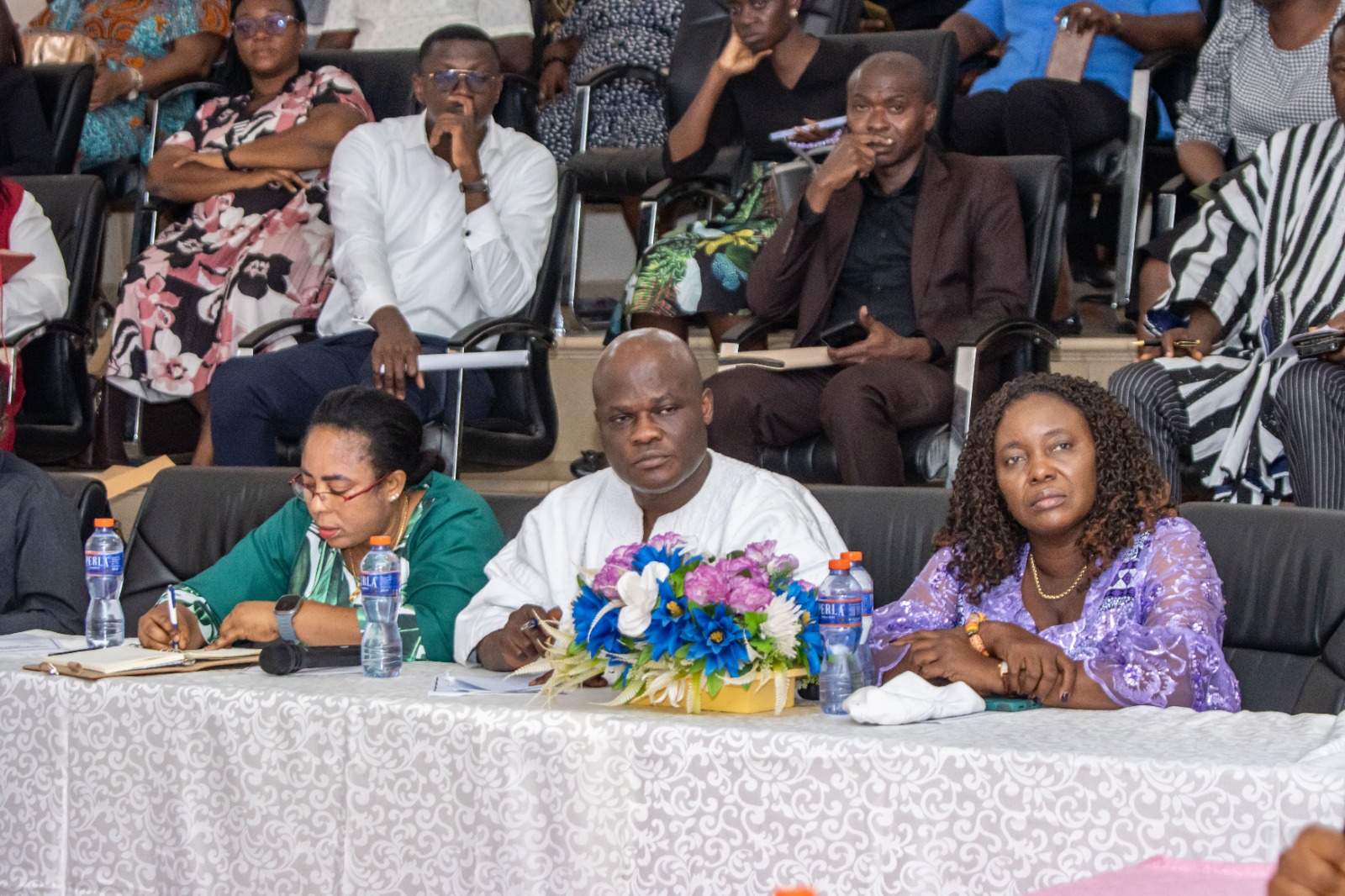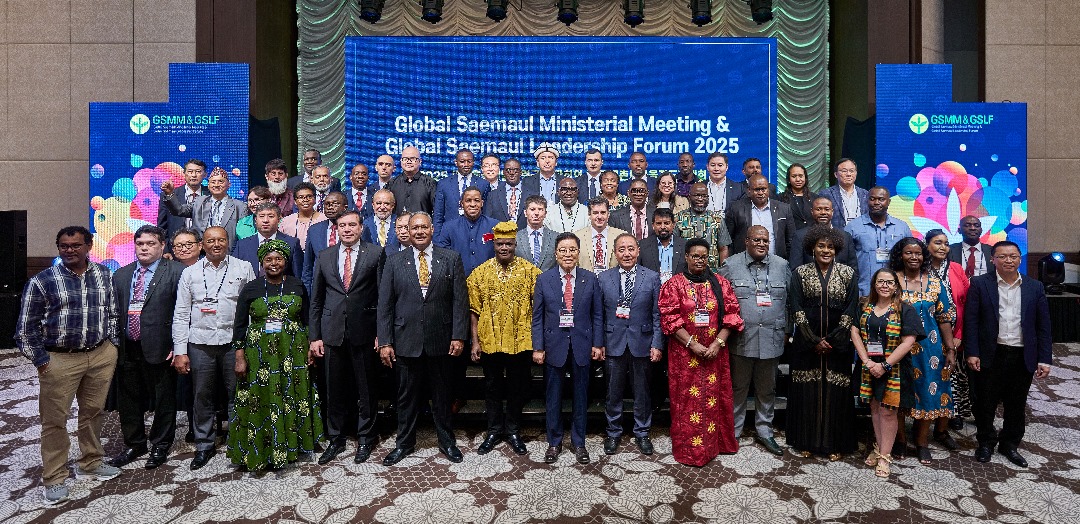The Minister for Locreater Accra Regional House of Chiefs on Strengthening Local Governance Collaborational Government, Chieftaincy and Religious Affairs, Hon. Ahmed Ibrahim, has reaffirmed government’s commitment to strengthening partnership between traditional leaders and Metropolitan, Municipal and District Chief Executives to enhance governance efficiency and sustainable development at the local level.
He made the remarks when he paid a courtesy call on the members of the Greater Accra Regional House of Chiefs, Dodowa, on Thursday, 9th October 2025.
Addressing the chiefs and queenmothers, the Minister explained that the recent merger of the Ministry of Local Government with the Ministry of Chieftaincy and Religious Affairs forms part of government’s broader reset agenda aimed at promoting coordination, eliminating administrative overlaps, and fostering integration between traditional leadership and modern local governance systems.
This reform, according to him, is not merely a bureaucratic adjustment; it is a transformational agenda that seeks to harmonize the roles of traditional and administrative authorities for the collective advancement of local development.
Hon. Ibrahim informed the members that, per the new structure, the Ministry aims to Strengthen linkages between Traditional Councils and District Assemblies for improved coordination; Enhance communication and data flow between traditional governance and local administrative systems and facilitate joint community development projects, while Improving efficiency in public service delivery.
He underscored the pivotal role of chiefs as custodians of culture, peace, and land, stressing that sustainable development is only achievable when traditional authorities actively participate in local governance.
The Minister assured the House that the Ministry will continue to provide the necessary policy, institutional, and financial support to ensure seamless implementation of the merger, including capacity-building programmes for Registrars and Traditional Council Members.
Hon. Ibrahim also expressed his appreciation to the President of the Greater Accra Regional House of Chiefs, His Majesty King Prof. Odaifio Welentsi III, and the Greater Accra Regional Minister, Hon. Linda Obenewaa Akweley Ocloo as well as the Deputy Minister for Local Government, Chieftaincy and Religious Affairs, Hon. Rita Naa Odoley Sowah for their leadership and support in facilitating effective dialogue between government and traditional authorities.
Source: Chantal Aidoo
Public Relations Unit, MLGCRA

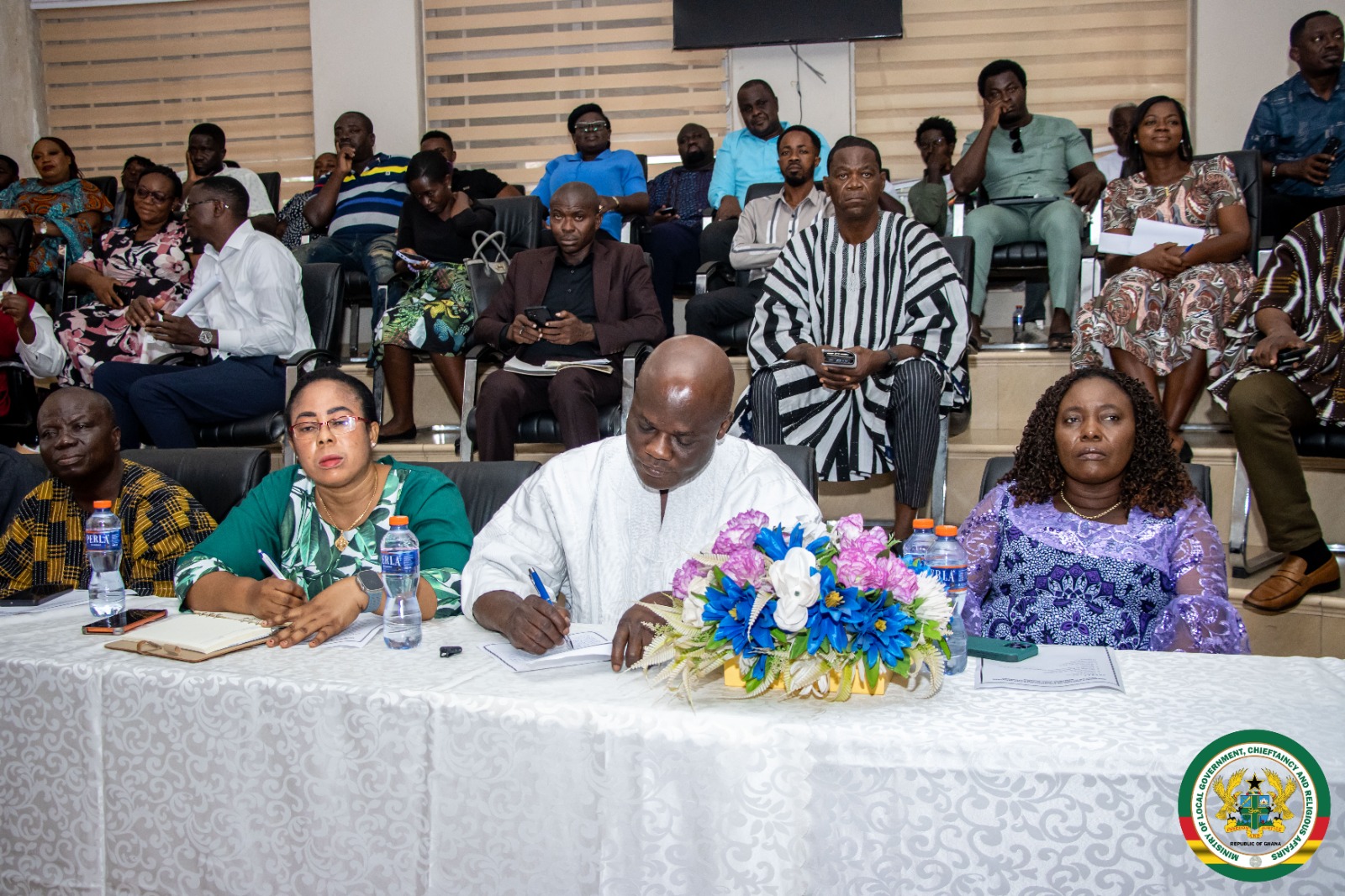
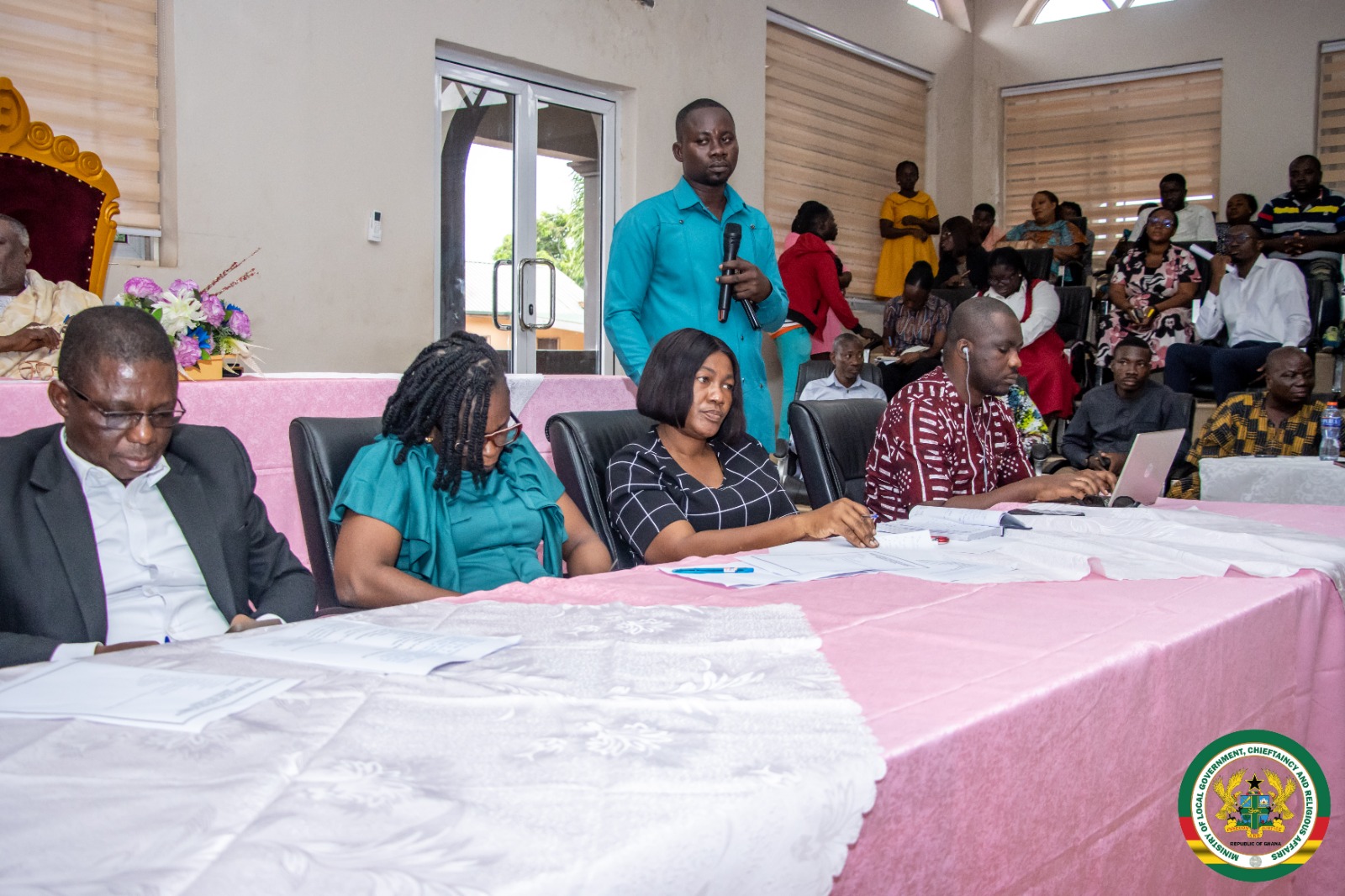
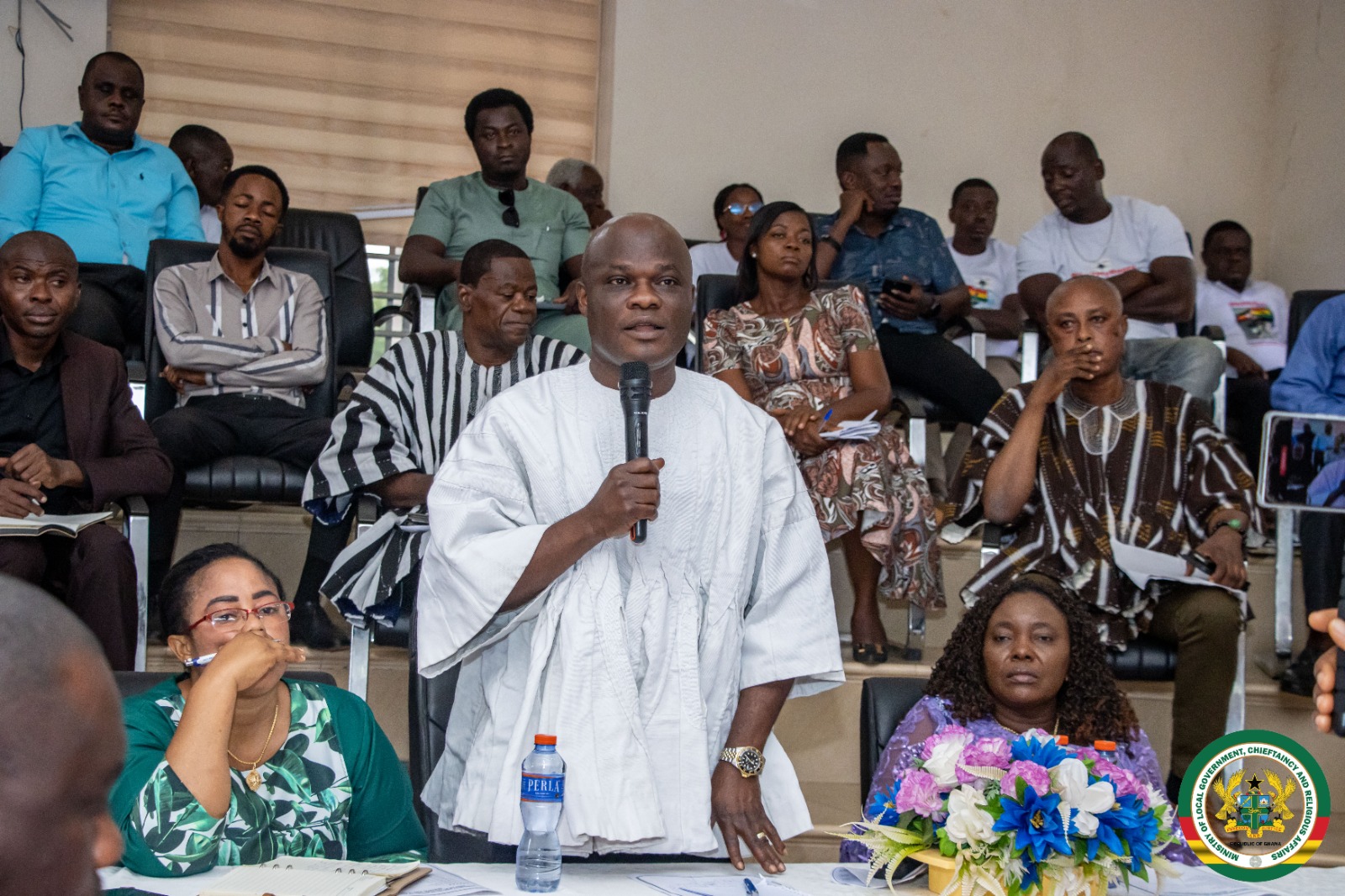
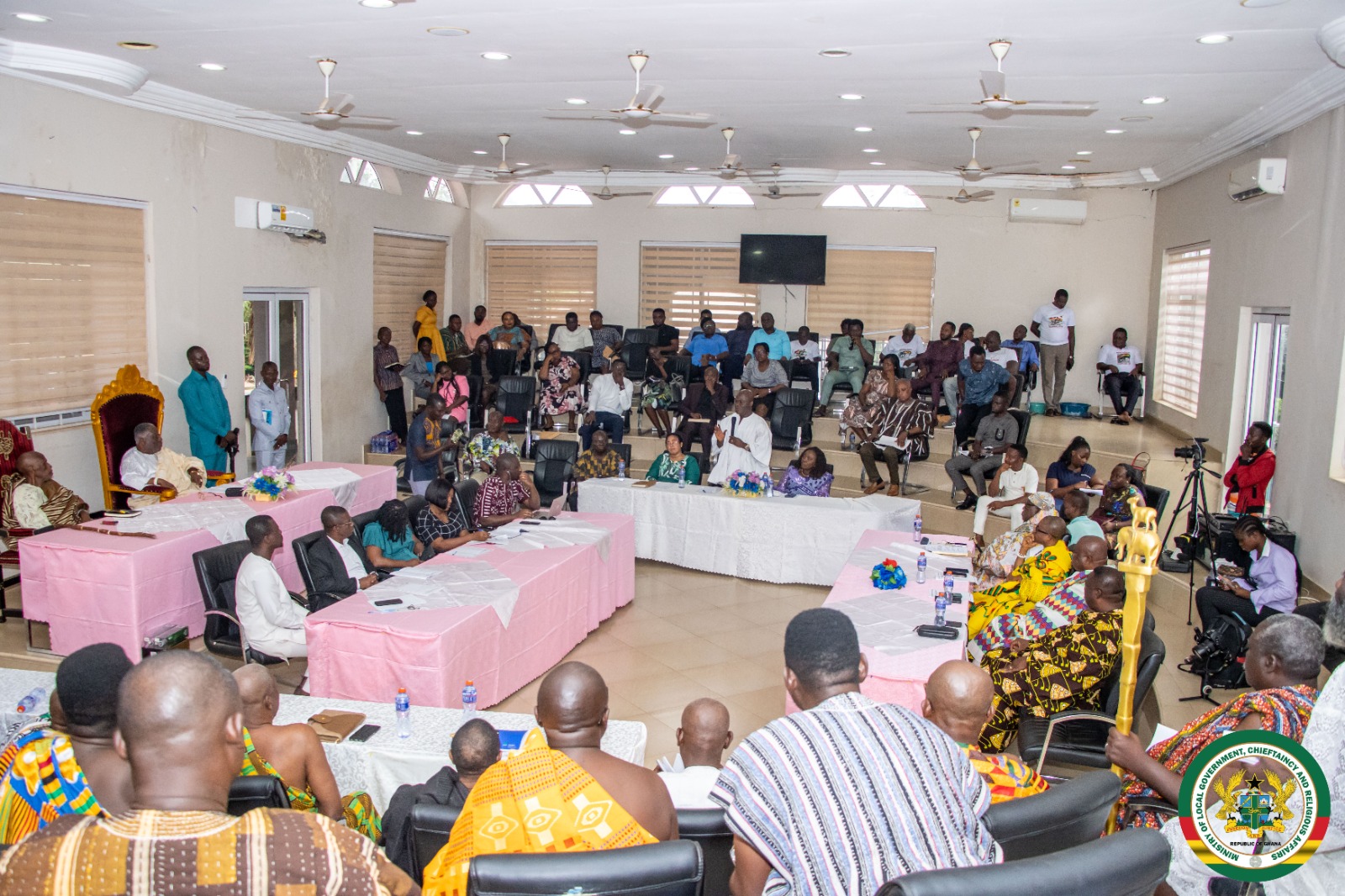
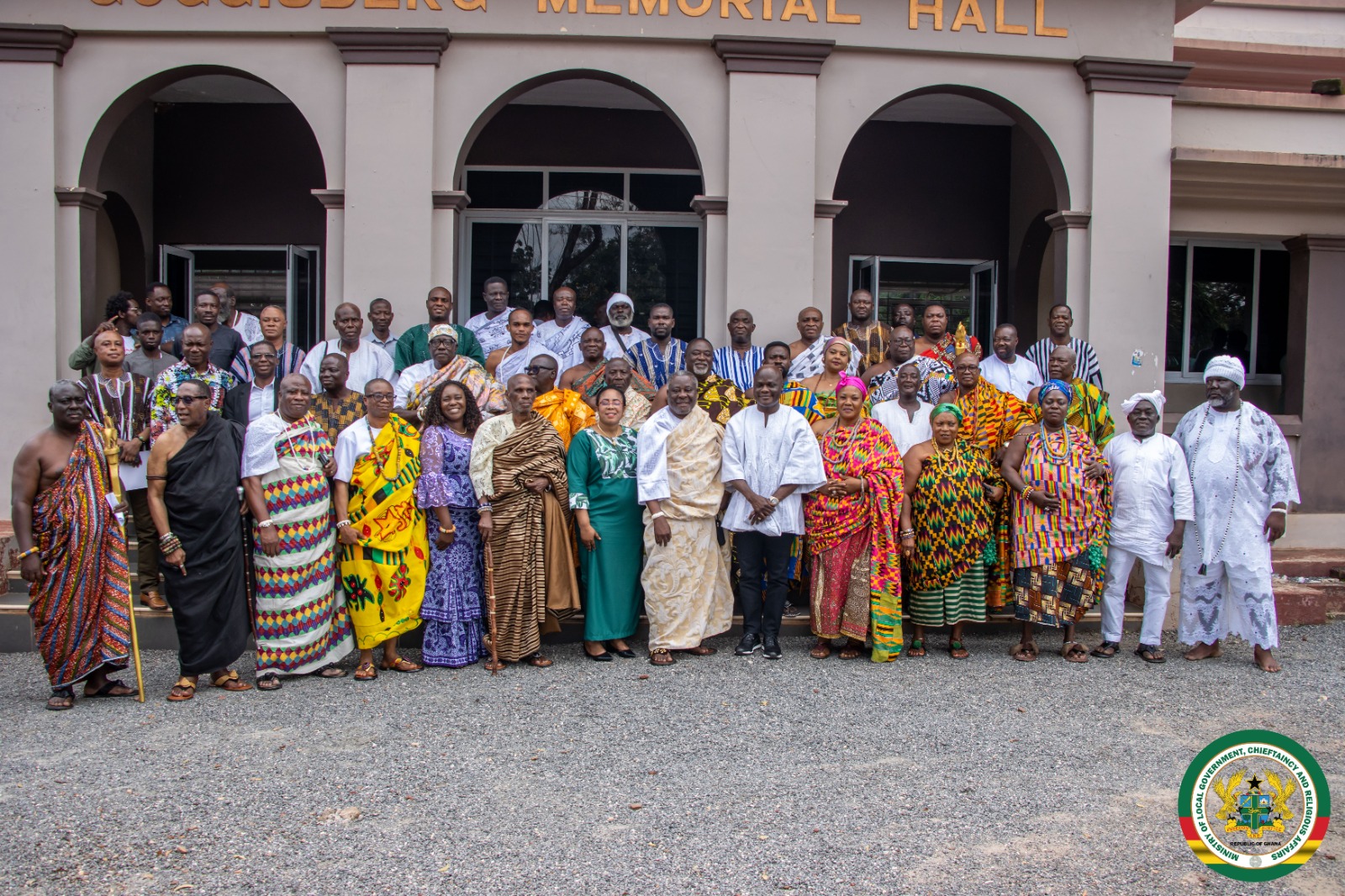
.jpeg)
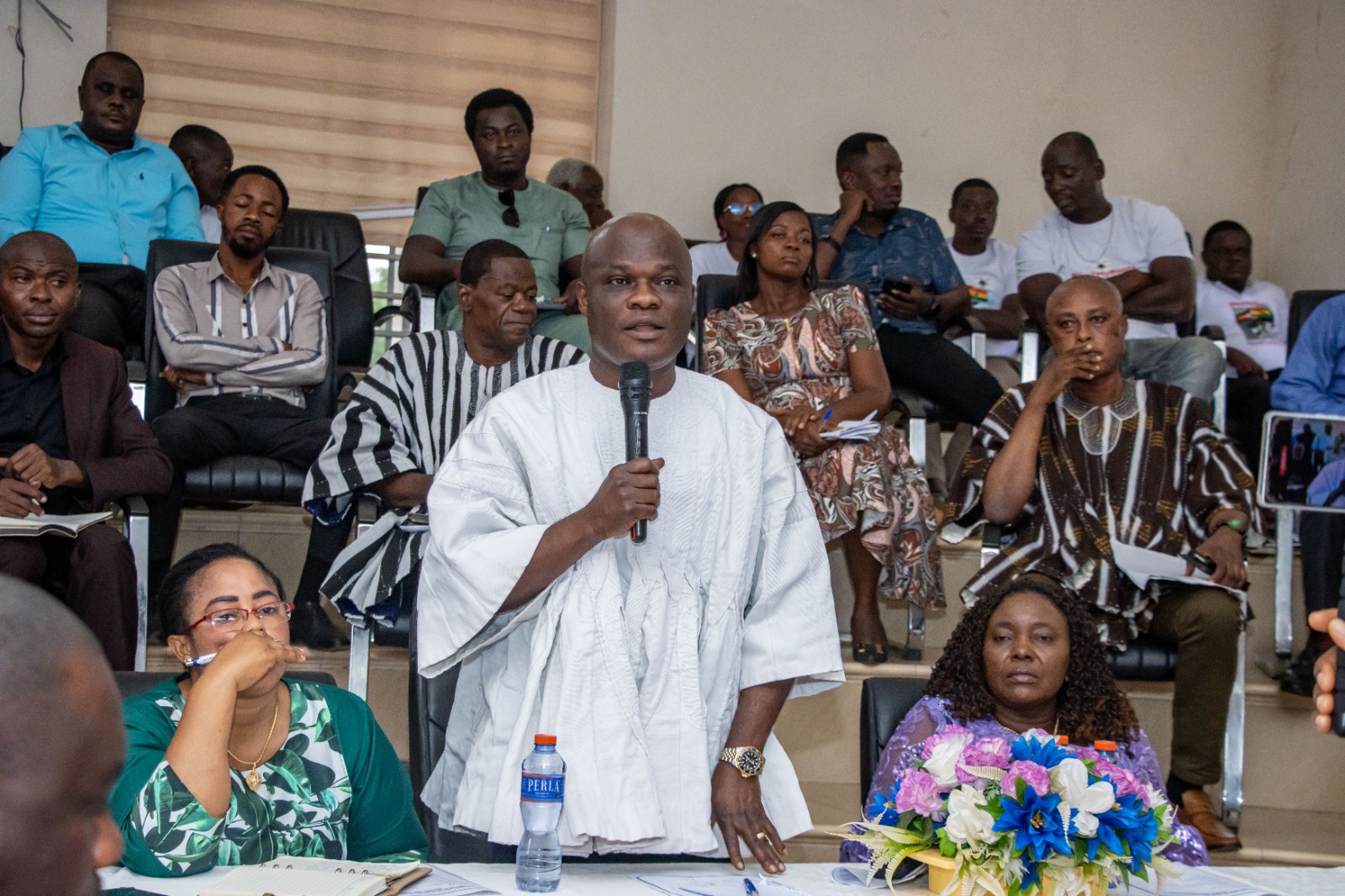
.jpeg)
